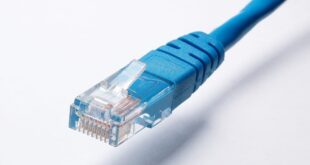Top 20 Ways to Stay Safe Online Amidst Cyber Attacks
1. Create Strong and Unique Passwords
Your password is the key to your online safety. Use a combination of uppercase and lowercase letters, numbers, and special characters to make your password stronger. It is essential to have a unique password for each online account to minimize the risk of multiple accounts being compromised.
2. Enable Two-Factor Authentication
Two-factor authentication adds an extra layer of security by requiring a second form of verification, typically through a mobile device or email. Enable this feature whenever possible to protect your accounts from unauthorized access.
3. Keep Your Software Updated
Regularly updating your operating system and software is crucial for maintaining strong security. Updates often include important security patches that fix vulnerabilities that cyber attackers may exploit.
4. Be Cautious of Phishing Emails
Always be skeptical of unexpected emails, especially those requesting personal information or urging immediate action. Cybercriminals often use phishing emails to trick users into revealing sensitive information.
5. Install a Reliable Antivirus Software
Invest in a reputable antivirus software and keep it updated. Antivirus programs can protect your computer from viruses, malware, and spyware that can compromise your personal data.
6. Regularly Backup Your Data
Backing up your data ensures that even in the event of a cyber attack, you won’t lose irreplaceable files. Cloud storage or external hard drives are excellent options for safely storing your data.
7. Use a Firewall
Firewalls act as a barrier between your computer and potential intruders. Enable your operating system’s built-in firewall or install a third-party firewall to safeguard your system.
8. Avoid Using Public Wi-Fi Networks
Public Wi-Fi networks are not always secure and can leave you vulnerable to attacks. Avoid accessing sensitive information while connected to a public network or use a Virtual Private Network (VPN) for added security.
9. Be Mindful of Social Media Privacy Settings
Manage your social media privacy settings to ensure that only trusted individuals can view your posts and personal information. Limit the amount of personal data visible to the public to minimize the risk of social engineering attacks.
10. Monitor Your Bank and Credit Card Statements
Frequently review your bank and credit card statements for any suspicious activity. In case of unauthorized charges or unfamiliar transactions, notify your financial institution immediately.
11. Use Encrypted Websites
Look for websites that employ encryption protocols (https:// instead of http://) when transmitting sensitive information. This will help secure your data during transmission.
12. Be Careful when Clicking Links
Avoid clicking on random links or downloading files from unknown sources, as they may contain malware. Hover over a link before clicking to verify its destination.
13. Educate Yourself About Cybersecurity
Stay informed about the latest online security threats and best practices. Educating yourself will help you recognize potential risks, ensuring you can navigate the online world with confidence.
14. Secure Your Home Network
Change your default Wi-Fi password and router login details to enhance your home network security. Additionally, consider disabling remote management and staying updated with the latest router firmware.
15. Enable Automatic Updates on Your Devices
Schedule automatic updates for your devices to ensure you have the latest security features. This includes not only your computer but also your mobile devices and other connected gadgets.
16. Use Biometric Authentication
Leverage biometric features like fingerprint or facial recognition whenever available for an extra layer of security. These unique identifiers add an additional safeguard against unauthorized access.
17. Regularly Review App Permissions
Periodically check the permissions you’ve granted to various apps on your devices. Revoke access for any applications that no longer require the permissions or appear suspicious.
18. Be Wary of Public USB Charging Stations
Avoid using public charging stations as they might contain hidden malware that can compromise your device. Carry your charger or use portable power banks instead.
19. Securely Dispose of Old Devices
Before getting rid of any old devices, make sure to wipe the data and do a full factory reset. This ensures that no personal information remains on the device.
20. Implement Privacy Settings on Internet of Things (IoT) Devices
If you have IoT devices, such as smart home systems or wearable technology, review and adjust their privacy settings. Restrict access or permissions to minimize potential vulnerabilities.
Incorporating these 20 simple and effective ways into your online habits will significantly enhance your security in the digital world. Staying vigilant and maintaining good cybersecurity practices will help protect your personal information, ensuring your online experiences remain safe and enjoyable!
 Mind Uncharted Explore. Discover. Learn.
Mind Uncharted Explore. Discover. Learn.




